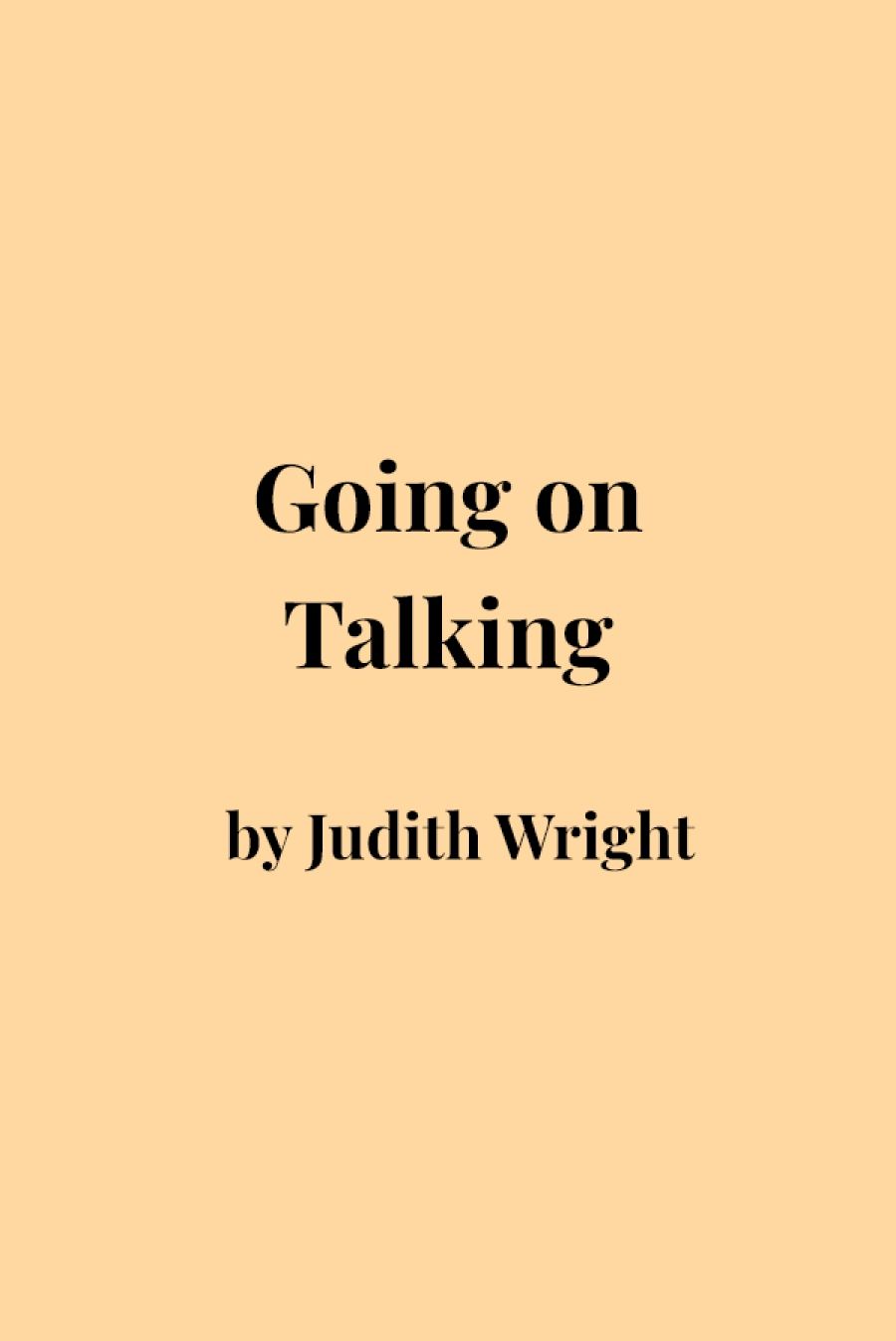
- Free Article: No
- Contents Category: Essay Collection
- Review Article: Yes
- Online Only: No
- Custom Highlight Text:
Perusing the Australia Day honours list, I was disappointed to see that Judith Wright had not been honoured with a major award. She is one of our greatest living poets, a pioneer environmentalist, and a tireless champion of Aboriginal rights. In this year, when the nation is still coming to terms with the momentous implications of the Mabo decision, it is worth remembering that Wright has been a key supporter of and advocate for the Murray Islanders land case since its inception in 1981. Wright is one white Australian who does not need an International Year of the Indigenous People to draw her attention to the outstanding worth of people such as Eddie Mabo and Mandawuy Yunupingu.
- Book 1 Title: Going on Talking
- Book 1 Biblio: Butterfly Books, $14.95 pb
I have heard it said that it is a shame Wright has given up poetry and now confines herself to proselytising. Such utterances betray a total misunderstanding of the poet and the wellsprings of her work. It is the kind of misunderstanding that has led her to withdraw her famous poem ‘Bullocky’ from further in anthologies because it is continually glossed as praise of the pioneers and isolated from those accompanying poems that provide its context, poems such ‘Nigger’s Leap, New England’. As she is always at pains to point out, all her concerns – conservation, Aboriginal rights, human rights – are as indispensable to her as her poetry, ‘and indeed indispensable to the writing of poetry itself’. If she has given up poetry it is because these concerns are now so acute, so consuming.
In her essay ‘Books in the Age of Admass’, she quotes the Greek poet George Sefaris’s observation that ‘in these days there are poets who use the word truth or the word freedom with the same indifference with which they say to a stranger “I am pleased to meet you”’. She cannot and will not privilege the writing of poetry in a society that regards the Aboriginal people as obstacles to progress rather than respecting them ‘as having access to truths and realities with which we have long, to our own damage, lost touch’.
These observations and others on the poetic imagination are to be found in the first half of Butterfly Books’ collection of Wright’s occasional pieces, Going on Talking. In the second half, the essays focus on a deeply felt anxiety about the environment. It is an obvious pairing since the two concerns are inextricable for a writer who believes without poetry ‘we deal with our environment purely as a system to be exploited’ instead of ‘not only the source and support of all things natural but of language itself’. Environmental concerns pepper her poetry and she has been a high profile green pioneer with her eloquent defence of the fragile ecosystem of this country. Some of her finest speeches are collected here. What is missing is Wright’s passionate insistence that conservation must include within it the full restitution of land rights to Aboriginal people and the tension she perceives between environmentalism and Aboriginal rights. It is, I think, unfortunate that her essays on Aboriginal rights belong to a quite separate collection, Born of the Conquerors from the Institute of Aboriginal Studies.
Going on Talking reveals Judith Wright as environmental activist and public spokesperson for conservation, but what it does not reveal is that Wright has actually resigned from the Queensland conservation body she helped found and from the Wilderness Society because of their policy on land rights. Although she has welcomed conservation groups’ greater understanding of the justice of Aboriginal claims, she has pulled no punches in her condemnation of those environmental organisations who have denied the rights of Aboriginal traditional owners to land they see as wilderness.
In ‘Wilderness and Wasteland’ (Island 42, now collected in Born of the Conquerors) Wright is scarifying about the Wilderness Society whose policy she says ‘adds up to a confirmation and endorsement of the terra nullius judgment … that has resulted over the past 200 years in dispossession, destruction, and the denial of human rights to Aborigines’. It is a position from which she will not resile, insisting that we stand no chance of reaching ecojustice without justice to those ‘whose immemorial territory we are living on without their consent’. If conservation organisations ‘can step no further than the Wilderness Society has, that day is far off’.
Judith Wright is a courageous and stubborn writer and all Australians will be enriched for as long as she keeps Going on Talking.


Comments powered by CComment